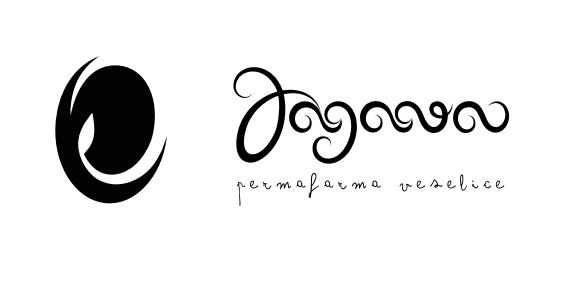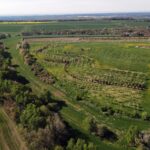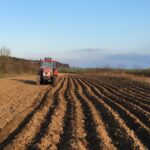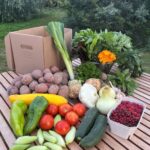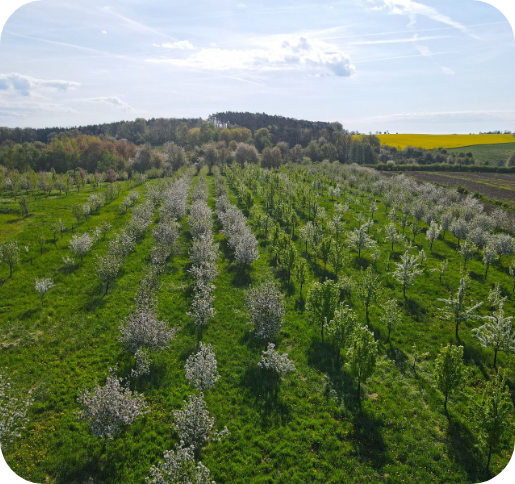
Kontaktní osoba:
Tomáš Franěk
soukromý zemědělec

Živá laboratoř 1: Česká republika
Jagava Permafarma
Spravuje: Tomáš Franěk
Obecné informace
Farma Jagava se nachází v obci Veselice v okrese Kutná Hora. Areál byl dříve součástí historického statku, o němž jsou záznamy již ze 14. století, kdy zde byla tvrz. Po mnoho let byla půda využívána pro konvenční zemědělství. Nyní se snažíme o přeměnu území s využitím permakulturních a agrolesnických principů.
Na projektu se podílejí místní obyvatelé a odborníci na permakulturu/lesnictví. Naším hlavním cílem je vytvořit udržitelný, soběstačný ekosystém, který bude prospěšný jak pro životní prostředí, tak pro místní komunitu. Naše motivace vychází z touhy po obnově krajiny, zvýšení biologické rozmanitosti a produkci zdravých potravin. Využíváme agrolesnictví, protože si uvědomujeme výhody dlouhodobé udržitelnosti, které přináší integrace stromů se zemědělskými plodinami.
První výsadba ovocných stromů a keřů začala v roce 2014 a od té doby jsme rozšířili sortiment plodin a experimentujeme s různými agrolesnickými metodami. Farma se nachází v mírně zvlněném terénu, což nám umožňuje využívat rozmanité mikroklima. Půda je převážně hlinitopísčitá, v některých oblastech se vyskytuje vyšší koncentrace jílu nebo písku. Máme přibližně 30 cm svrchní vrstvy půdy, která se díky našim postupům obhospodařování půdy neustále zlepšuje.
Naším cílem je ukázat životaschopný model udržitelného zemědělství, který může sloužit jako příklad pro regionální zemědělce. Chceme ukázat, že je možné produkovat kvalitní potraviny při zachování ekologické harmonie.
Obecný přístup k zemědělství
Naše zemědělství je založeno na principech permakultury. Snažíme se jít příkladem a inspirovat ostatní, aby zkoušeli dělat věci jinak a hledali udržitelnější způsoby hospodaření.
Název JAGAVA je inspirován pozorováním horského potoka, kde se kameny o sebe spirálovitě třou. Tento jev symbolizuje zrození tvůrčích sil života ve vodě, která je metaforicky přirovnávána ke "krvi Země". Ve starověkém jazyce našich předků se tok života a tok řeky označovaly stejným slovem "AVA". "JAGAVÝ" pak odkazuje na jas hvězd a světel, které ohlašují projev nebeského, posvátného na Zemi. V kontextu našeho permafaru symbolizuje JAGAVA spojení pozemských a nebeských sil, proudění života a tvořivou energii přírody.
Cíle
Naším hlavním cílem je vytvořit udržitelný systém produkce, který se zaměřuje na ochlazování krajiny a zavádění účinných zavlažovacích postupů. Velmi nám záleží také na zvyšování biologické rozmanitosti, a to nejen kvůli ekologické rovnováze, ale také kvůli zajištění rozmanitosti plodin na prodej. Krajinné prvky hrají zásadní roli při poskytování stínu a zadržování vody, což jsou oba faktory nezbytné pro udržení zdravého ekosystému.
Výzvy
Zpočátku jsme naráželi na byrokratické překážky, které zpomalovaly realizaci našich plánů. Během výsadby stromů se objevily nečekané potíže, které vyžadovaly flexibilní přístup a rychlé řešení. Značné škody na nově vysazených stromech způsobené zvěří představují trvalý problém, který musíme aktivně řešit.
Výzkumné cíle
- Identifikace typů sítí: Určení typů sítí (podle typologie OECD), do kterých je zemědělský podnik zapojen.
- Popište zapojení digitální platformy: Znázornit, jak farma využívá digitální platformy pro různé aspekty svého podnikání.
- Analýza vlivu sítí na rozvoj: Zhodnocení vlivu zapojení do sítí na inovace (např. zavádění nových agrolesnických postupů), rozvoj podnikání (např. rozšiřování prodeje), přístup na trh a celkovou udržitelnost farmy.
- Určení konkrétních přínosů a problémů: Určit konkrétní výhody, které zapojení do sítě přináší farmě, a také případné problémy nebo překážky, na které v této souvislosti naráží.
- Získání hlubšího vhledu do fungování sítě v kontextu malého zemědělsko-lesnického podniku: Tato případová studie by měla přispět k lepšímu pochopení toho, jak sítě skutečně fungují a jaký mají dopad na menší zemědělsko-lesnické podniky.
Návrh agrolesnického systému
Naše farma má rozlohu přibližně 40 hektarů a zahrnuje různé zemědělské systémy, včetně bioklimatických pásů, sadů, zeleninových polí, pastvin a orné půdy. V bioklimatických pásech a sadech pěstujeme různé druhy dřevin, jako jsou duby, borovice, jeřáby, javory, olše, lípy, kaštany a ořešáky.
Stromy se vysazují v pásech o šířce 20 metrů s rozestupy 4 × 4 metry v sadech a 10 × 10 metrů u ořešáků a kaštanů.
Při pěstování stromů se zaměřujeme na přirozený růst a netvarujeme je do vřeten. Používáme minimální zavlažování, zejména u kořenové zeleniny. Hnojíme výhradně kompostem a k ochraně rostlin používáme pouze přírodní prostředky.
Naše systémy jsou navrženy tak, aby se vzájemně doplňovaly a podporovaly biologickou rozmanitost. Bioklimatické pásy pomáhají regulovat mikroklima a zadržovat vodu v krajině, zatímco pastviny poskytují prostor pro hospodářská zvířata a zeleninová pole a sady zajišťují produkci potravin.
Monitorování
Výzkum týkající se farmy JAGAVA se zaměří na podrobnou analýzu jejího zapojení do různých typů sítí definovaných Organizací pro hospodářskou spolupráci a rozvoj (OECD). To bude zahrnovat zkoumání, zda bude JAGAVA sdílet zdroje (výrobní sítě), účastnit se vzdělávacích aktivit a vyměňovat si zkušenosti (znalostní sítě), spolupracovat s jinými prodejci nebo využívat digitální platformy pro prodej (obchodní sítě) a jakým způsobem bude využívat digitální technologie pro své obchodní operace (digitální platformy). Cílem bude pochopit, jak tyto sítě ovlivní inovace agrolesnických postupů na farmě JAGAVA, rozvoj jejího podnikání, přístup na nové trhy a celkovou ekonomickou a environmentální udržitelnost.
Prostřednictvím hloubkové případové studie farmy JAGAVA se výzkum bude snažit určit konkrétní přínosy a problémy, které vyplynou z jejího zapojení do různých sítí. Půjde o analýzu dopadu sdílení zdrojů na efektivitu hospodaření, vlivu výměny znalostí na zavádění nových agrolesnických metod, významu obchodních sítí pro rozšíření prodejních kanálů a role digitálních platforem v marketingu a řízení farmy. Poznatky získané z případové studie JAGAVA budou následně zasazeny do širšího kontextu existujících studií o sítích malých a středních podniků a agrolesnictví v EU s cílem přispět k obecnějšímu pochopení významu sítí pro tento specifický typ podnikání.
 Načítání...
Načítání...

Česká republika, Veselice 16, 294 04 Veselice, okres Mladá Boleslav - Středočeský kraj

Velikost pozemku: 40 ha

Silvoarable, Silvohorticulture, Sady Silvopastorální a lesní pastva/dřevopásy V přípravě

Ovocné stromy, seno

Věk: 14 let

Počet stromů: 50

Ovoce (Třešně, Vlašské ořechy, Jedlé kaštany, Jabloně, Hrušky, Švestky, Višně, Černý rybíz, Arónie, Rakytník, Kornélie, Zimolez, Ostružiny, Maliny)
Zelenina (Brambory, mrkev, petržel, celer, pórek, cibule, česnek, dýně, cuketa, červená řepa, salát, zelí, kapusta, kedlubny, ředkvičky, papriky, okurky, rajčata, špenát, mangold, bylinky, topinambury).

Hospodářská zvířata: (Skotský náhorní skot); Slepice (Kuřata)

